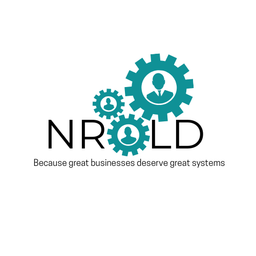A Practical Guide to Monetize Writing Skills
The path to monetizing your writing skills can seem confusing. You might think your only option is to write a bestselling novel, but the reality is that there are dozens of ways to earn a great income with your words.

This guide provides a clear, step-by-step framework to help you start your journey.
Step 1: Build Your Foundation: A Strong Portfolio and a Clear Niche
Before anyone hires you, they need to see your work. A portfolio is a collection of your best writing samples. It is your single most important tool for getting paid work. It proves you can deliver what you promise.
1. Create Your Writing Portfolio.
If you are just starting, you won't have paid client work to show. That is okay. You need to create your own samples. These are called "spec" pieces.
- Start a blog: Choose a topic you are passionate about and write 3-5 high-quality blog posts. This shows you can write consistently.
- Write for fictional clients: Pick a brand you admire and write a sample blog post or email newsletter for them.
- Offer to write for a local non-profit for free or a low fee: This is a great way to get a real sample and a testimonial.
Your portfolio doesn't need to be fancy. You can use a free platform like Contently, Journo Portfolio, or even a public Google Drive folder with your work saved as PDFs. The goal is to have a simple link you can send to potential clients.
2. Choose a Niche.
When you start, you might be tempted to write about anything. This is a mistake. When you are a generalist, you are a master of none. Choosing a niche helps you become an expert. Experts command higher pay and attract better clients.
Examples of Writing Niches:
- Industry Niches: Technology (like B2B SaaS), finance, health and wellness, real estate, or travel.
- Content Type Niches: Long-form blog posts and articles, email marketing, social media content, website copywriting, or video scripts.
How to Choose Your Niche:
Combine your interest, your experience, and what is profitable. Do you have a background in healthcare? You could be a health and wellness writer. Do you love learning about technology? You could specialize in writing for tech startups.
Step 2: The Direct Path: Monetize Through Freelance Writing
Freelancing is the most common way to make money as a writer. You work for yourself and provide writing services to clients. This is active income—you get paid for the work you do.
What kind of freelance writing can you do?
- Content Writing: Writing blog posts, articles, and e-books for businesses. Their goal is to inform and educate their audience. This is a huge market.
- Copywriting: Writing persuasive text that encourages people to take an action (like buy a product or sign up for a newsletter). This includes website pages, ads, and sales emails. Copywriting often pays more because it is directly tied to making money.
- Ghostwriting: You write content for someone else, and they put their name on it. This is common for books, speeches, and articles for busy executives.
How to Find Your First Freelance Clients:
- Freelance Marketplaces: Websites like Upwork and Fiverr are a great place to start. The key to success is creating a strong profile that highlights your niche and writing custom proposals for every job you apply for.
- Tell Your Network: Let your friends, family, and professional connections on LinkedIn know that you are offering writing services. Your first client is often someone you know or a referral from someone you know.
- Cold Pitching: This involves reaching out to companies you want to work with directly. Find businesses in your niche, find the right person to contact (like a content manager), and send them a short, personalized email.
Example of a Good Pitch:
- Subject: Idea for the [Company Name] Blog
- Body: "Hi [Name], I'm a freelance writer specializing in the B2B SaaS industry, and I'm a big fan of your company's podcast. I noticed you haven't written much about [a specific topic] on your blog. I have an idea for an article titled '5 Ways to Reduce Customer Churn with Better Onboarding' that I think your audience would love. Would you be open to hearing more?"
This pitch is specific, provides value, and shows you did your homework.
Step 3: The Scalable Path: Create Passive Income Streams
Passive income is about creating a product once and selling it over and over. This allows you to disconnect your time from your income, which is a powerful way to grow your earnings.
Passive Income Ideas for Writers:
- Blogging: Start a blog in a niche you are passionate about. Once you build an audience, you can monetize it with affiliate marketing (recommending products and earning a commission) or display ads.
- Writing and Selling E-books: Package your expertise into a short e-book. You can sell it on Amazon Kindle Direct Publishing (KDP), or directly from your own website using a tool like Gumroad.
- Building a Paid Newsletter: Platforms like Substack and Ghost allow you to create a premium newsletter that people pay to receive. If you can build a loyal community around your writing, this can be very profitable.
- Selling Templates: Create and sell templates like "10 high-converting email templates for e-commerce stores" or "a content calendar template for bloggers."
Step 4: The Expert Path: Monetize Your Knowledge
As you gain experience, your expertise itself becomes a valuable product. You can sell your knowledge in addition to your writing.
How to Monetize Your Expertise:
- Editing and Proofreading: Offer your sharp eye to other writers, students, or businesses.
- Content Strategy Consulting: Instead of just writing articles, you can get paid to help businesses plan their entire content strategy. This is a high-value service.
- Coaching and Mentoring: Help new writers start their careers. You can offer one-on-one coaching sessions where you review their portfolio or help them find clients.
Your ability to write well is a key that can unlock many doors. Action builds business. Start small, start smart—then scale

This content is AI-assisted and reviewed for accuracy, but errors may occur. Always consult a legal/financial professional before making business decisions. nrold.com is not liable for any actions taken based on this information.


